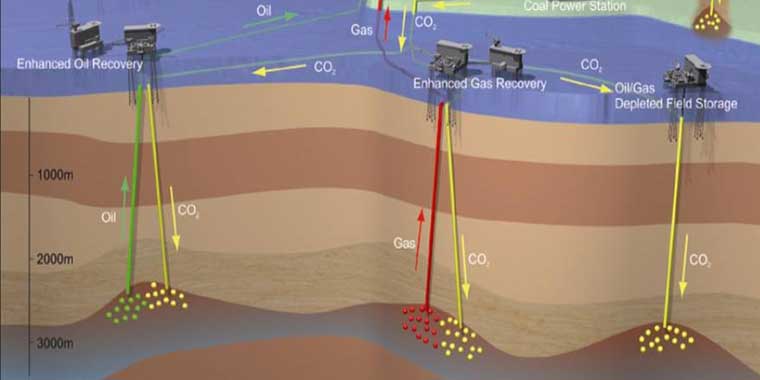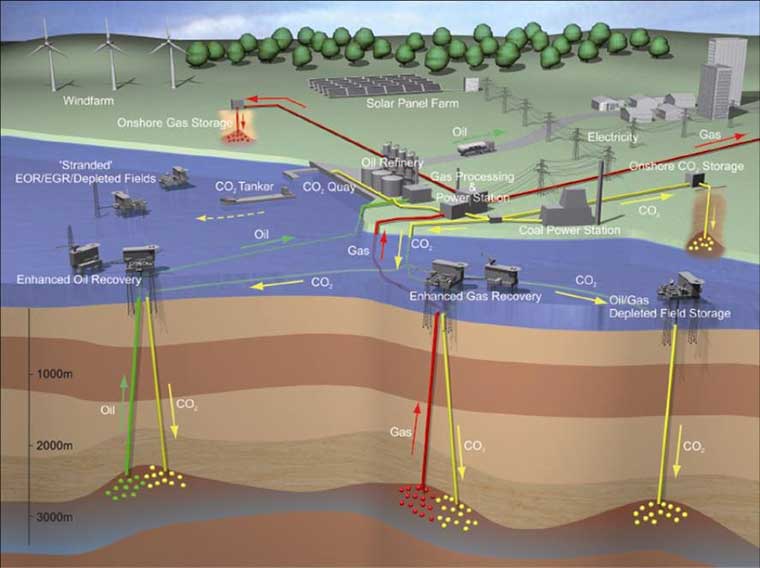
CCS and Oil and Gas – A Symbiotic Relationship

I completed a Masters in Environmental Technology from 2003 – 2004. When I started the course, I was a firm believer in renewables being the silver bullet for tackling climate change. Thankfully, my views matured by the time I graduated – I grew to understand two very important facts:
- There is no silver bullet to tackling climate change – all options will be needed
- The world will continue to need coal, oil and gas to meet energy demand for a long time
Actually, thinking about the second fact – if you take gas for example, then there’s another reason why we need this source of energy; it has the ability to be flexible to meet sudden changes in demand (unlike intermittent renewables).
Since the Paris Agreement was signed last December, we are now in a world where limiting the global temperature increase to 1.5°C is a very real ambition. So we need to find options that allow us to reduce emissions whilst ensuring energy demand is met. Fuel switching from coal to gas is one way to reduce emissions, as using gas to produce electricity emits around half of the CO2 emissions of coal.
Going further, we will need Carbon Capture and Storage (CCS) on coal, oil and gas, as CCS removes more than 90% of the CO2 emissions from these sources. As well as enabling the oil and gas industry to continue to meet vital energy demand in a carbon-constrained world, there are a number of important synergies between CCS and the oil and gas industry:
- CO2 can be stored in depleted oil and gas fields – enabling the continued use of important offshore infrastructure, retaining vital jobs and skills and deferring decommissioning
- CO2 can be combined with Enhanced Oil Recovery (EOR) to produce otherwise unrecoverable oil whilst safely storing CO2. In Texas, this has yielded up to a third more oil than would otherwise have been the case. Combining EOR with CCS provides a valuable revenue stream that can help to reduce the costs of CCS (many CCS projects around the world are using this business model)
- CCS is considered a key solution for reducing emissions from oil refining (in the UK, the Government’s industrial decarbonisation roadmaps identify the potential for CCS to contribute to a 64% reduction in emissions in this sector by 2050)
One day, when the world finally wakes up to the massive importance of CCS, I do believe that the image shown here will be the norm:

CCS clusters of power and industrial facilities will be connected by a common pipeline network that transports the CO2 to a number of different storage options (including enhanced oil recovery, storage in depleted oil and gas fields and storage in saline formations).
We need to find a way to realise this picture. As the IPCC have concluded; without CCS, the cost of meeting global climate change targets could increase by 138% by 2050. And who, in their right mind, could justify such a cost increase – when the solution is ready and available now?
About Judith Shapiro
Judith Shapiro, Policy and Communications Manager with the Carbon Capture & Storage Association, has been with the Association since its launch in March 2006. Prior to joining CCSA, Judith worked for both the UK Business Council for Sustainable Energy and the Combined Heat and Power Association as a Researcher. Judith has a BSc in Biology and an MSc in Environmental Technology from Imperial College, London.
